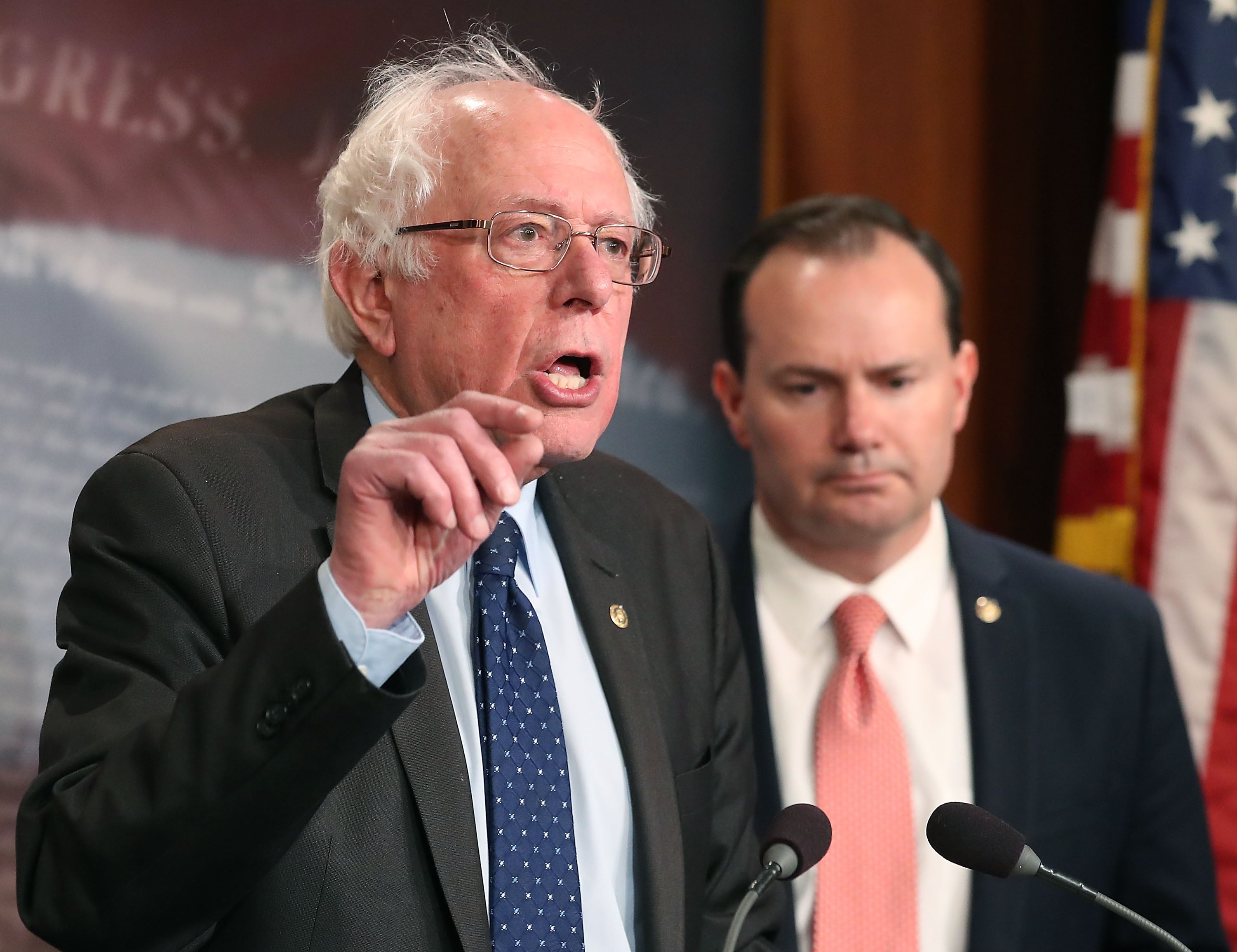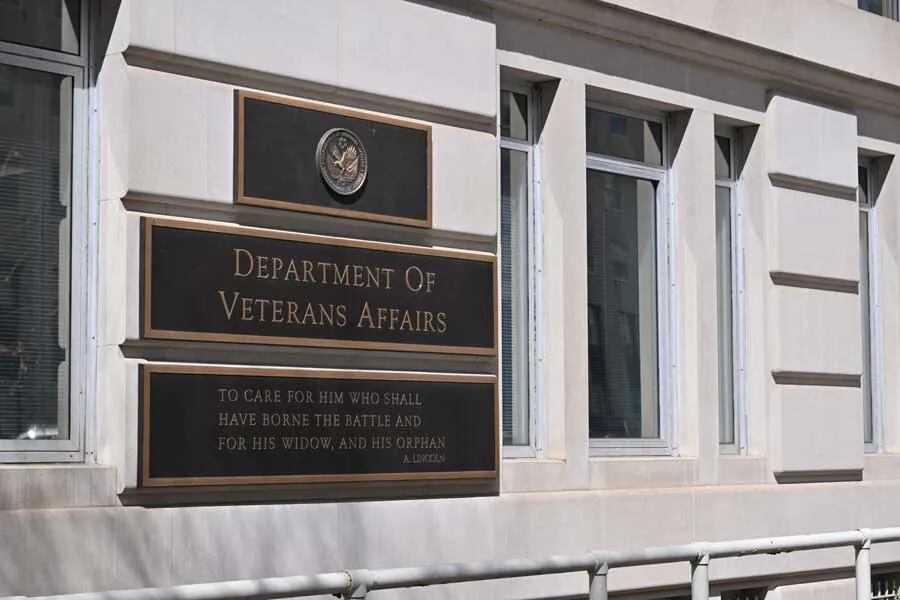WASHINGTON and HALIFAX, Canada — President Donald Trump released a lengthy statement Tuesday justifying the U.S. alliance with Saudi Arabia by focusing on domestic economic benefits and the threat from Iran — and saying he does not know whether Saudi leaders ordered a journalist’s murder.
In the White House statement, Trump repeated disputed claims he won $110 billion in U.S.-Saudi arms deals as he signaled he will not move to take stronger action against Saudi Arabia since the murder of Saudi journalist Jamal Khashoggi and amid the civilian deaths from Saudi-led airstrikes in Yemen’s civil war.
Per Trump, his trip to Saudi Arabia last year landed the mega deal for weapons as part of a Saudi agreement to spend $450 billion in the U.S. — “a record amount of money” that “will create hundreds of thousands of jobs, tremendous economic development, and much additional wealth for the United States."
“Of the $450 billion, $110 billion will be spent on the purchase of military equipment from Boeing, Lockheed Martin, Raytheon and many other great U.S. defense contractors,” the statement reads. “If we foolishly cancel these contracts, Russia and China would be the enormous beneficiaries — and very happy to acquire all of this newfound business. It would be a wonderful gift to them directly from the United States!”
Trump, in the statement, pointed to Saudi Crown Prince Mohammed bin Salman’s denials of involvement in Khashoggi’s murder.
“King Salman and Crown Prince Mohammad bin Salman vigorously deny any knowledge of the planning or execution of the murder of Mr. Khashoggi. Our intelligence agencies continue to assess all information, but it could very well be that the Crown Prince had knowledge of this tragic event — maybe he did and maybe he didn’t!” Trump’s statement reads.
Turkish President Recep Tayyip Erdogan has said the order to kill Khashoggi on Oct. 2 in the Saudi Consulate in Istanbul came from the highest level of the Saudi leadership. Turkish Defense Minister Hulusi Akar said Saturday that an 18-member “kill team” from Saudi Arabia carried out the murder of Khashoggi and could have smuggled his body parts out of the country thanks to their diplomatic status.
Saudi Arabia’s foreign minister, Adel al-Jubeir, said Tuesday in an Arabic-language newspaper interview that claims, including by the CIA, that Salman gave the order to kill Khashoggi were false.
Though the Trump administration has imposed sanctions on 17 Saudis accused of involvement in the killing and made a joint decision with Riyadh to end U.S. refueling of Saudi aircraft involved in the Yemen war, Trump’s letter signals he will seek to defy the growing call in Congress to take further action in light of Khashoggi’s death, like halting U.S. arms sales to the kingdom.
Trump said in his statement that while he understands members of Congress may “like to go in a different direction” he would only proceed if ideas “are consistent with the absolute security and safety of America.”
“As President of the United States I intend to ensure that, in a very dangerous world, America is pursuing its national interests and vigorously contesting countries that wish to do us harm,” he said. “Very simply it is called America First!”
RELATED

In a statement Tuesday, the top Democrat on the Senate Armed Services Committee decried Trump’s “disturbing willingness to take the word of Vladimir Putin or the Saudi Crown Prince over U.S. intelligence professionals.”
“This White House statement is a stunning window into President Trump’s autocratic tendencies, his limited grasp of world affairs, and his weakness on the world stage. It is shocking to see President Trump continue to act as an accomplice to a clear cover up by Saudi leadership,” said Sen. Jack Reed, of Rhode Island.
Reed is co-sponsoring bipartisan legislation to halt arms sales to Saudi Arabia, mandate sanctions for Khashoggi’s killers, and bar U.S. refueling of Saudi-led coalition aircraft engaged in the Yemen civil war, among other oversight measures related to the conflict there.
Another co-sponsor, Senate Foreign Relations Committee and Armed Services Committee member Jeanne Shaheen, D-N.H, offered her own rebuke of Trump’s letter.
“President Trump’s habit of siding with murderous foreign dictators over American intelligence professionals is a stain on our democracy that undermines the American ideal,” Shaheen said in a statement. “Fortunately, the President is not the sole protector of that ideal. Congress must now stand up with bipartisan resolve to condemn the brutal slaying of Jamal Khashoggi and pass legislation to respond to this and other Saudi crimes.”
While it’s unclear whether that bill will see a vote, Sen. Bernie Sanders, I-Vt., said he expects his war powers resolution — meant to compel an end to U.S. involvement in the Yemen war — to come to a vote after Thanksgiving.
Economic benefits
A new report by the Center for International Policy, a Washington-based think tank, argues that U.S. arms sales Trump touts in the letter amount to $14.5 billion and fewer than 20,000 U.S. jobs per year. The president is getting it backwards, and the U.S. role as Saudi Arabia’s weapons supplier gives the U.S. strong leverage over Riyadh, according to the report’s author, William Hartung, director of the think tank’s Arms and Security Project.
“The Saudi military depends on U.S. arms, spare parts and maintenance to carry out its brutal war in Yemen, and could not prosecute that war for long without that support,” Hartung said.
Two-thirds of the 365 combat-capable aircraft in the Saudi arsenal are of American-origin, including 171 F-15 combat aircraft, a mainstay of the Saudi air war in Yemen. The Saudi land forces and National Guard possess more than 3,000 U.S.-supplied armored vehicles, and the Saudis have tens of thousands of U.S.-supplied bombs and missiles.
That’s why a competitor could not easily replace the U.S. in supplying Riyadh, according to Hartung.
“It would take decades for the Kingdom to wean itself from dependence on U.S. equipment, training and support, and new equipment might not be easily interoperable with U.S.-supplied systems,” Hartung said. “Saudi Arabia could buy a Russian or Chinese system here or there to send a political message, but they could not easily replace the role of sales and support from the United States, along with the United Kingdom, as the major bulwarks of its military capability.”
Though Trump has claimed U.S.-Saudi arms deals account for 40,000 jobs, Hartung reckons that because there are $2.5 billion in annual arms deliveries to Saudi Arabia, only 17,500 jobs would have been created in any given year. Still, that’s equal to less than three one-hundredths of 1 percent of the total U.S. labor force of more than 160 million people.
To boot, many of the jobs will be created in Saudi Arabia as part of its new economic plan, which calls for 50 percent of the value of Saudi arms purchases to be produced in the kingdom by 2030.
A key part of Trump’s rationale is that Iran was responsible for the war in Yemen, attempting to destabilize Iraq, supporting Hezbollah and propping up Syrian President Bashar Assad. Saudi Arabia would leave Yemen if Iran does, he argued.
Since 2015, the Saudi-led coalition allied with the government has been fighting the Iran-backed Houthis, who took over Yemen’s capital, Sanaa, have fired long-range missiles into Saudi Arabia and have targeted vessels in the Red Sea.
“Likewise, the Iranians have killed many Americans and other innocent people throughout the Middle East,” the letter reads. “Iran states openly, and with great force, ‘Death to America!’ and ‘Death to Israel!’ Iran is considered ‘the world’s leading sponsor of terror.’ ”
RELATED

The Pentagon’s top uniformed officer was asked at a public forum Saturday to provide a military perspective on the impact of a freeze of U.S. arms sales to Riyadh. Joint Chiefs Chairman Gen. Joe Dunford said Saudi Arabia has been and is now “an important partner for regional security."
“Their cooperation, interoperability and capability, if you will, would be a stabilizing force for the region, has been a stabilizing force for the region,” Dunford said, adding that Saudi Arabia was one of America’s partners in the Middle East.
“Working forward,” he said, “we will listen carefully to whatever the policy is in light of recent events.”
The House Intelligence Committee’s ranking member, Rep. Adam Schiff, D-Calif., on Tuesday fired back at Trump’s statement, calling for an end to support for Saudi Arabia in the war in Yemen, suspending arms sales to the kingdom “and diminish[ing] our reliance on Riyadh regarding other matters in the region.”
Schiff, the panel’s presumptive chairman when Democrats assume control of the House, previously said the committee will conduct a “deep dive” examination of Saudi Arabia’s conduct in the wake of the Khashoggi murder.
“It is true that our relationship is with the Kingdom of Saudi Arabia, not just its Crown Prince, and that must factor into our response,” Schiff said in a statement.
“But to suggest ‘maybe he did and maybe he didn’t’ or that we are incapable of finding out the truth, or that knowing the truth our silence can be bought with arms sales, undermines respect for the Office of the Presidency, the credibility of our intelligence community and America’s standing as a champion of human rights.”
Joe Gould was the senior Pentagon reporter for Defense News, covering the intersection of national security policy, politics and the defense industry. He had previously served as Congress reporter.





